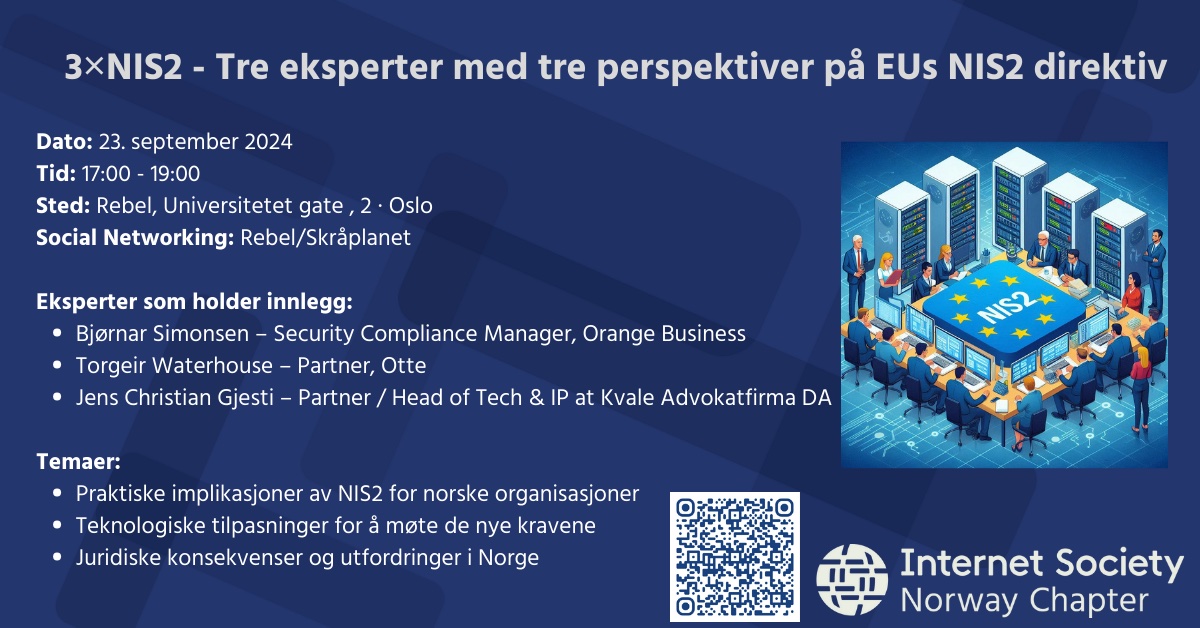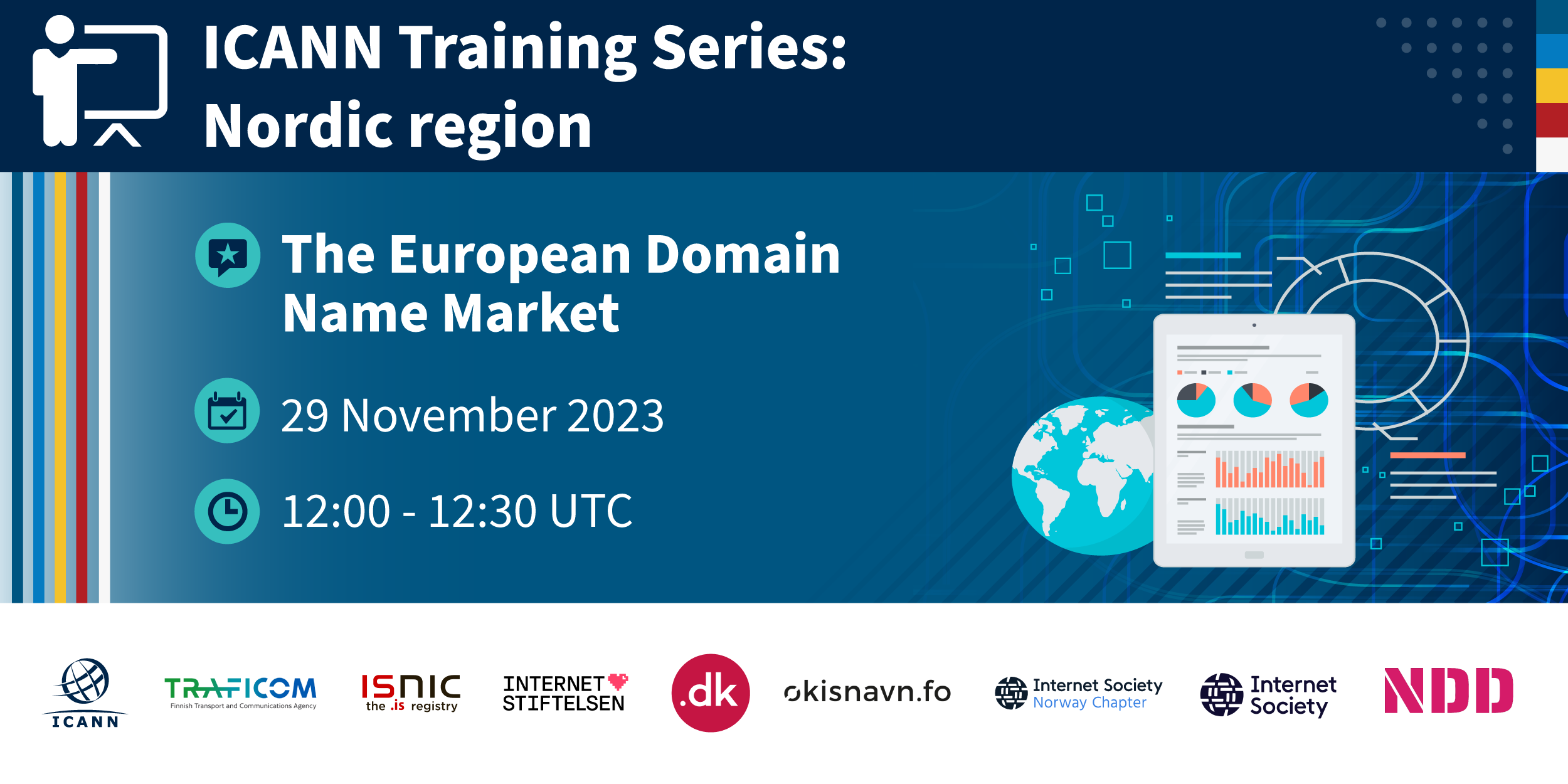
ÅRSMØTE I ISOC NORGE
Årsmøte i ISOC Norge 13. mars 2024
- Sted: Rebel, Universitetsgata 2, 0164 Oslo
AGENDA
- 18:00: Keynote session: Bjørn Remseth: “Ramblings about future regulation of artificial intelligence (AI)”
- 19:00: Årsmøte ISOC Norge
Zoom link for ekstern deltakelse finner du her.
Dokumenter til årsmøtet vil bli fortløpende lagt ut.
Saker til årsmøte må sendes til post[@]isoc.no innen 12. februar 2024.
Etter årsmøtet samles vi på Skråplanet, Rebel.
DAGSORDEN
- Sak 1 Godkjenning av innkalling og saksliste
- Sak 2 Valg av møtestyrer
- Sak 3 Valg av referent
- Sak 4 Valg av to personer til å skrive under protokollen
- Sak 5 Godkjenning av årsrapport
- Sak 6 Godkjenning av regnskap forrige periode
- Sak 7 Budsjett for 2024
- Sak 8 Medlemsavgift
- Sak 9 Valg av styremedlemmer
- Sak 10 Vedtektsendringer
- Sak 11 Eventuelt
SAKSDOKUMENTER TIL ÅRSMØTET
-
-
-
- SAK 5: Årsrapport for 2023 (rev)
- SAK 6: REGNSKAP 2023
- SAK 7: Budsjett for 2024
- SAK 8: Medlemsavgift
Det foreslås ingen medlemsavgift-endring for 2024. Medlemsavgift er dermed fortsatt kr. 0. - SAK 9: Valg av styremedlemmer:
Følgende personer foreslås valgt for perioden 2024-2026:
Steinar Grøtterød
Thilina Pathirana
Joar R. Rasmussen - SAK 10: Vedtektsendringer
Present:
Article 6: The Board
6.7. The Chair and the Treasurer have separate authority each to sign on behalf of the ISOC Norway Chapter. The Chair has the authority to ordain procura.
Proposed updates:Article 6: The Board
6.7 a) The Chair and one board member can sign for the organisation.
6.7 b) The Chair is procurist alone.Rationale: This is in accordance with common accounting principles.
Present:
Article 4: Annual Meeting4.2. The Annual meeting elects the Board and votes on issues including:
4.2.1 The budget for the current calendar-yearProposed updates:Article 4: Annual Meeting
4.2.1 Any changes to the membership fee
4.2.2 Changes for the ISOC Norway Chapter bylawsRationale: The GA shall not vote on the proposed budget but take a note of the proposed budget. This is in accordance with common accounting principles. - SAK 11: Eventuelt
-
-
Keynote session
 Bjørn Remseth: “Ramblings about future regulation of artificial intelligence (AI)”
Bjørn Remseth: “Ramblings about future regulation of artificial intelligence (AI)”
I will look at some possible, more and less plausible, directions AI can take. I will outline some basic directions for future developments of both harm and good to justify that there is a balance to be struck between them, and then argue that regulation can be useful to keep AI mostly beneficial for humanity. I’ll consider some drivers of the development of AI, in particular finance, hardware and algorithms. Then I’ll look at some trends that ride on the fundamentals: Generative AI, regression/classification on steroids, robotics, virtual reality/augmented reality. These trends, and more, will challenge our concepts of what intellectual property, possession, privacy and maybe also violence and coercion is. I will offer some ideas on how to regulate, and how liberal or draconian it makes sense to be.
A disclaimer is in order: While I am doing this in my role as vice president of Electronic Frontier Norway (efn.no), what I’m presenting is not the policy of EFN, it is part of the discussion we have that eventually ends up in EFN policy. These are my ramblings.
Bjørn Remseth is employed developing software for a large international company. He is educated as Cand. Scient. in Informatics at the University of Oslo.
Webinar for the Nordics: The European Domain Name Market
The next webinar for the Nordics will take place on the 29th November at 12.00 UTC. It will give an overview of the European Domain Name Market and will be kindly presented by the Council of European National Top-Level Domain Registries (CENTR).
Registration + all information is available at https://features.icann.org/event/icann-organization/icann-training-series-nordics-european-domain-name-market